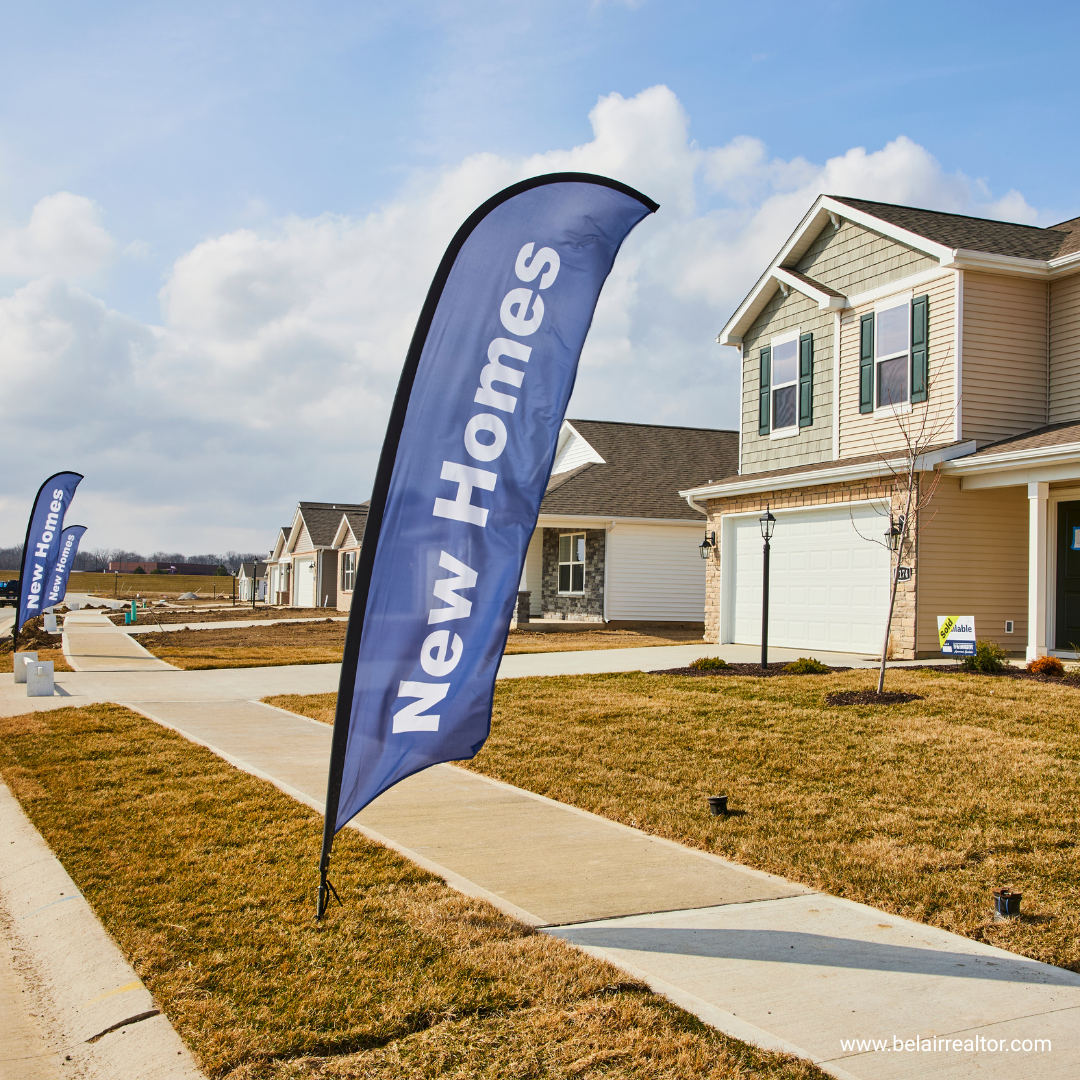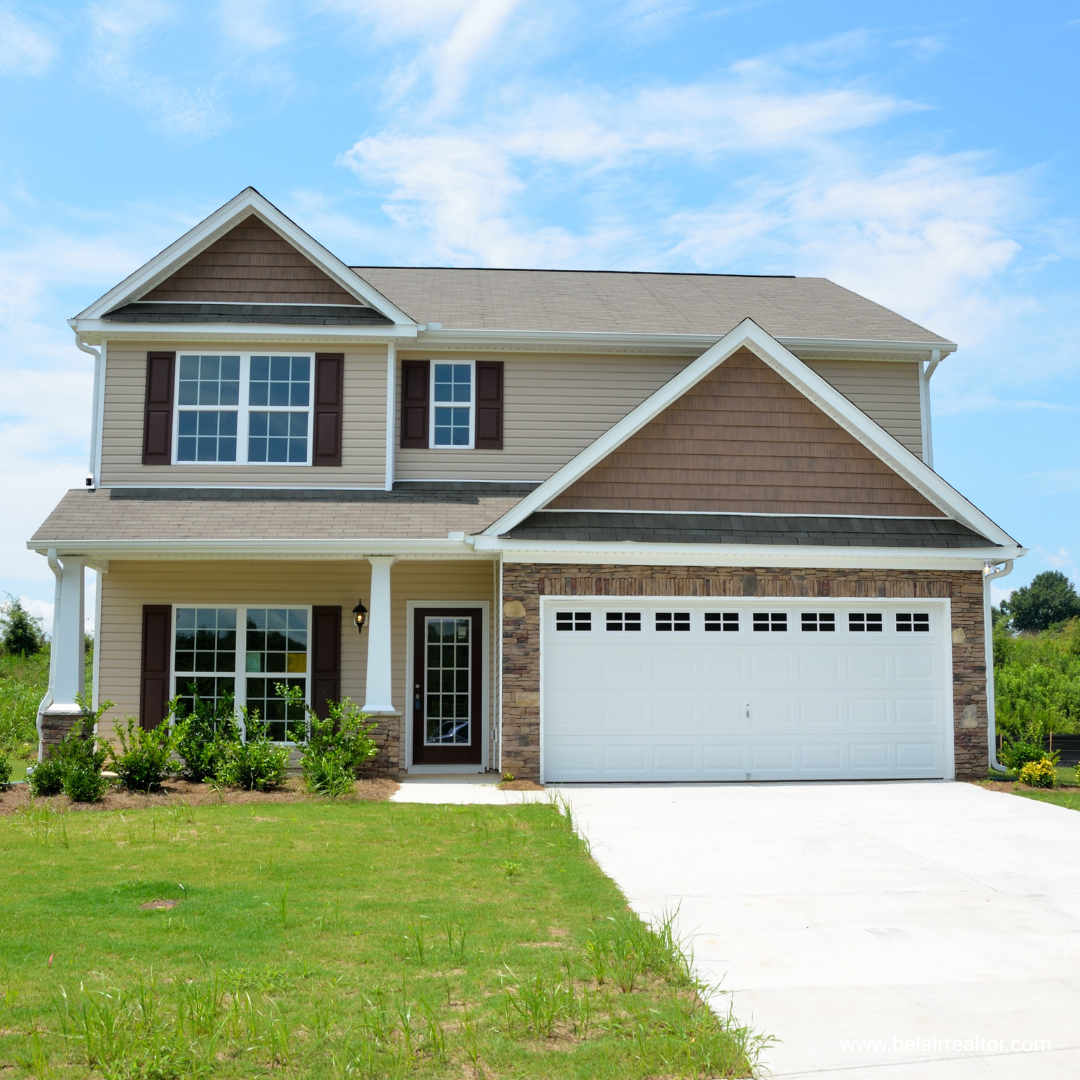Buying a brand-new home is exciting – everything is pristine, up-to-date, and built just for you. Over the long run, real estate tends to appreciate in value. However, many real estate professionals observe that homeowners who try to resell a new home within a year or two often struggle to turn a profit (or even break even). Is this just anecdotal, or does data back it up? Below we explore what happens to a new home’s price shortly after purchase and why short-term sellers of new construction often can “take a hit.”
The “New Home Premium” – and Its Immediate Disappearance 
When you buy a newly built home, you typically pay a premium price for its brand-new condition and modern features. Developers often price new builds higher than similar existing homes in the area because buyers are willing to pay extra to be the first occupant and enjoy the latest design and energy-efficiency standards. Unfortunately, much like driving a new car off the lot, a new house loses its “brand new” status as soon as you move in. The moment a home is lived in, it’s no longer a shiny new build in buyers’ eyes – it becomes a “used” home. This means you generally cannot resell it for the same premium price you paid. In fact, if you try to sell within the first few years, the local “second-hand” home prices likely won’t have risen enough to cover that premium, meaning you might not get all your money back.
Real estate data supports this concept. One analysis found that new construction homes appreciated at an average rate of only ~2.8% per year, significantly less than the ~4.0% average for all homes over the past 20 years. In that study, about 9% of new homes actually sold for a loss compared to their original purchase price. This indicates that a portion of new home buyers who resold did not recoup what they paid. Another source notes new build houses have been known to lose value by over 7% from their initial price once they’re no longer new. In other words, the “new home premium” can evaporate quickly, leaving a short-term seller in the hole.
Competing With the Builder and Other New Units
A unique challenge when reselling a near-new home is competition from the original builder. If your home is in a development that’s still under construction or has unsold new units, a buyer can often go directly to the builder for a brand-new house. Builders may offer incentives (upgrades, closing cost assistance, etc.) or allow customizations like choosing finishes – perks you can’t offer on your slightly used home. Given the choice, most buyers would prefer a freshly built, customizable home over a one-year-old house, especially if the price is similar. This forces sellers of nearly new homes to undercut the builder’s pricing to attract interest. Industry experts estimate you might need to slash your price by 5–10% to effectively compete with the builder’s ongoing sales.
This dynamic is a big reason why values of new vs. existing homes diverge in the short run. In fact, real estate agents often advise: if you only plan to own a home a short time, buy an older home; if you plan to stay long-term, then buying new can make sense. A new construction property is best viewed as a long-term investment; in the short term, your nearly-new listing will be in direct competition with brand-new construction in the neighborhood. As one article put it, selling a “used” new build in an active development is almost impossible to do at a profit – you’re up against the builder’s inventory and incentives.
Transaction Costs and Lack of Immediate Equity
Beyond market value, consider the transaction costs that eat into your proceeds if you sell within a year or two. Buying and selling real estate isn’t free – far from it. As a buyer, you might have paid around 3–5% of the purchase price in closing costs (lender fees, title, escrow, etc.). As a seller, you’re typically on the hook for 8–10% of the sale price after accounting for agent commissions, transfer taxes, and other closing costs. Together, these costs mean a home generally needs to appreciate well over 10% from what you paid just to break even on a resale. In only a year or two, most markets simply don’t see that kind of jump in value. “Usually, you’ll earn back those costs as the home’s value increases over time, but if you’re selling your home after just a year, it probably won’t have appreciated enough to cover the losses,” one real estate guide explains.
On top of that, if you financed the purchase, remember that in the first couple of years most mortgage payments go toward interest, not principal. Mortgages are front-loaded with interest, so after one year you’ve barely chipped away at the loan balance. This means you haven’t built much home equity yet – you’re essentially trying to sell a house you still owe almost the full purchase price on. Without substantial price appreciation (or a large down payment initially), there’s little equity to cash out after paying off your remaining mortgage and all the selling expenses. In short, you’re paying a lot to get in and out of the home in a short time, and the home’s value hasn’t had enough time to grow to cover those costs.
Why New Homes May Not Rise in Value Immediately (Key Factors)
- Initial Overpricing vs. Market – New builds often cost more than comparable older homes in the same area, essentially “pricing in” future appreciation up front. In the first couple of years, surrounding resale home prices may not have caught up, leaving the new home overpriced in the resale market. The value needs time to normalize.
- Builder Discounts on Remaining Lots – Early buyers in a subdivision sometimes pay top dollar, only to find the builder later discounting final units or offering deals to sell out the development. This can pull down the appraised value of recently built homes like yours.
- Neighborhood Maturity – New developments can take time to mature and gain desirability. If the location lacks established amenities (schools, shopping, etc.) initially, a new home’s value might rise slowly until the area is more built out. In contrast, an older home in a fully developed neighborhood might appreciate steadily.
- Market Conditions and Oversupply – If a lot of new homes hit the market at once (overdevelopment), supply can outstrip demand in the short run. And if the broader housing market softens (or interest rates jump) right after you buy, a new home is not immune – its value can flatline or fall just like any other property in a downturn. Recent data shows a growing minority of homeowners are selling at a loss in 2025’s cooler market, especially those who bought at the peak. For example, 16% of sellers who purchased after the 2020–2022 pandemic boom are at risk of losing money on a sale, compared to only 1.8% of those who bought before the boom. The shorter your hold, the more you’re exposed to any market dip.
- Short-Term Tax Considerations – If you do happen to sell for a gain in under two years, that profit could be subject to higher capital gains taxes (treated as short-term income). While not a direct factor in home value, it’s another financial hit that makes quick turnarounds less rewarding. (By living in the home at least two years, you can usually exclude much of the gain from taxes – another incentive to stay put a bit longer.)
New Homes Appreciate – But Mostly for Patient Owners
None of this is to say that new homes never appreciate or that buying new is a bad idea. Over the long run, new construction can be a fine investment, often gaining value alongside the overall housing market. The crucial point is that it takes time for the investment to pay off. Short investment horizons are much more volatile and risky in real estate. A newly built home’s value might even dip before it rises, but given enough years (and assuming normal market conditions), it should eventually appreciate and can yield a solid return.
Historically, real estate experts have advised following a “five-year rule” – plan to hold a home for about five years or more to comfortably recoup your purchase costs and ride out any short-term fluctuations. By around the five-year mark, a few things usually happen: the area has developed further, your principal payments have built some equity, and home prices (ideally) have trended upward. Indeed, one Bankrate analysis notes that the time needed to safely cover costs “is typically about five years” of ownership. If you can’t stay that long, even just making it past the two-year point is better than selling at one year, not only to avoid certain taxes but also because it gives the market a bit more time to lift your home’s value.
It’s telling to look at who does profit from quick sales: often it’s people who bought when prices were very low (or the market was rising rapidly) and then sold into a hot market. Those situations are hard to predict and not the norm. For the average new home buyer, the “get rich quick” flip is unlikely. As Redfin’s data illustrated, the longer you’ve owned your home, the more likely you are to come out ahead on resale. Recent buyers face the toughest odds.
Conclusion: Patience Pays with New Construction
Owners of newly built homes who try to sell in the first year or two often see disappointing financial results. The combination of paying a new-home premium, immediate value “decay” once the home is no longer new, stiff competition from builders, and significant transaction costs means you’re usually looking at breaking even at best – and quite possibly a loss – on a short-term resale. Real estate values generally increase over time, but time is the operative word. With a new home especially, you need to give it time for its value to appreciate beyond what you initially paid.
For real estate agents and homebuyers, the takeaway is clear: think long-term with new construction. If circumstances force you to sell a brand-new home soon after purchase, go in with realistic expectations. You may need to price aggressively (below comparable new units) and accept that your “like-new” home won’t command the same premium it did when it was fresh from the builder. In many cases, renting the home out or staying put a few more years can mitigate losses until you reach a more advantageous point to sell. But if you hold onto that new home for a longer horizon, chances are you will eventually start to see the value growth that homeowners expect – and the decision to buy new will pay off in the end.
Sources
- Boutique Home Plans – Do New Homes Hold Their Value?
- SlothMove – Do New Build Houses Lose Value?
- FlatFeeListing – How to Price Property to Sell
- ListWithClever – Can You Sell a House After One Year?
- Bankrate – Selling Your House After 2 Years
- Redfin – Risk of Selling at a Loss

